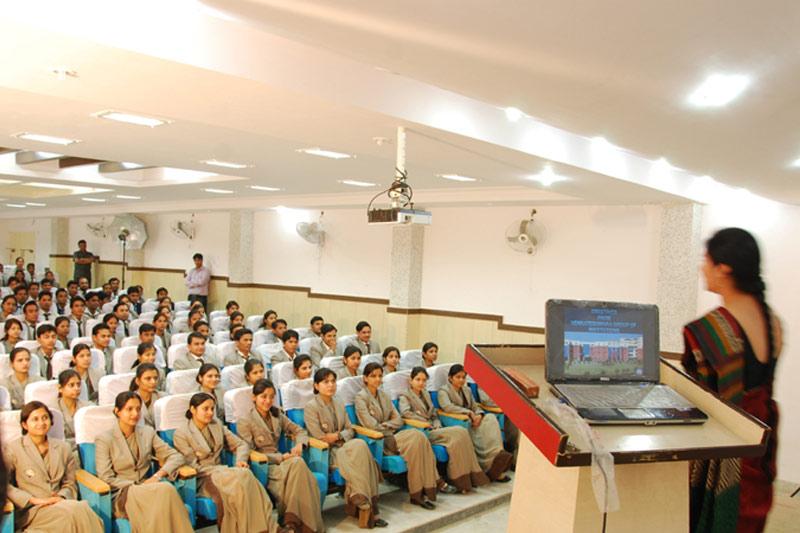Mtech in ECE – Job Roles After a Degree in this Field

You've probably heard that more options make it easier to find your interest. But more choices don't always mean an easier decision. You need to consider many factors when choosing a career. Several factors influence your career choices. It depends on your interests, industry growth and demand for certain jobs. This article discusses the top career options after an Mtech in ECE.
Communication Engineer
One of the top job profiles for these graduates is in the field of communications. This role involves working with radio, internet, satellites, and wireless communication systems. Professionals in this area develop and improve these technologies. They analyze existing communication methods. They also research new advancements. The industry is always evolving to enhance speed and reliability due to technological advancement.
Telecom Engineer
Telecommunication includes electronic communication systems, optical cables, IP networks, old telephone equipment, and microwave cables. A telecom engineer, like a communication engineer, designs and analyzes new technologies for customers. They also research current services to improve them. Telecom is used in nearly all industries worldwide and is a reliable field for the future.
R&D Software Engineer
The Research and Development Software Engineer develops and tests new software products. They need technical skills in automation and process controls. Many top companies in India and abroad focus on research and development. This role offers many job opportunities in reputable companies in the software and electronics fields.
Software Analyst
As the name suggests, a software analyst’s job is to manage, design, create, and test software for the organization. They act as a bridge between software users and developers. The main task of graduates from the best Mtech in Electronics and Communication Engineering is to adjust the software's algorithms based on customer needs and make updates to improve user experience.
Electronic Design Engineer
This job is about making electronic devices that meet what customers want. It follows what the industry needs and what clients want for changing electronic designs. It handles all the electronic gear in a company, and tests and improves products, focusing on cost-effectiveness and positive factors.
Desktop Support Engineer
Server errors and security problems are common in all businesses, big or small. A desktop support engineer fixes these computer issues for everyone who depends on technology, which is pretty much the whole team! Nowadays, most work in organizations happens on computers, which are super quick with advanced tech, but that also means server errors happen often. That’s why a desktop support engineer is crucial for keeping the company running smoothly.
Technical Director
A technical director oversees the tech side of a software or engineering company. They play a vital role in meeting client needs and ensuring top-quality work from the engineering team. This job pays well and is important for the company's growth. To become a technical director, you typically need experience in communication or electronics engineering after MTech in ECE, and it's a common goal for tech enthusiasts after a few years in the field.
Network Planning Engineer
A network planning engineer keeps the company's computer networks running smoothly. They focus on reliability, feasibility, and making things easy for the tech team. Key skills include network planning, security, internet, software, and basic hardware knowledge.
Sales Manager
A sales manager in electronics and communication engineering focuses on growing sales, meeting targets, selling products, and leading the sales team. They create new ideas, set goals, monitor performance, and compare profits year-on-year. They analyze data to plan for future growth and can switch industries easily. This flexibility is a big advantage for sales managers in this field.
Conclusion
The above is a list of job roles that a student can complete after attaining an MTech in Electronics and Communication Engineering degree.
- Art
- Causes
- Crafts
- Dance
- Drinks
- Film
- Fitness
- Food
- Jogos
- Gardening
- Health
- Início
- Literature
- Music
- Networking
- Outro
- Party
- Religion
- Shopping
- Sports
- Theater
- Wellness
- IT, Cloud, Software and Technology


